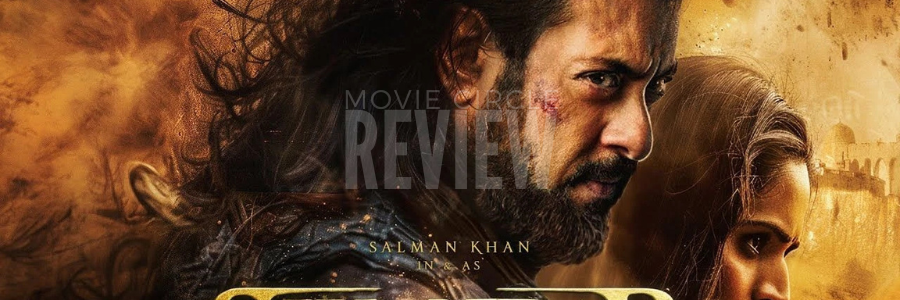Regarding historical personalities, few have had such long-lasting influence on the planet as Alexander the Great, sometimes referred to as Sikandar. His name has come to be associated with military genius, unmatched conquests, and a legacy that helped to define nations all around. Though history books, documentaries, and movies have repeatedly presented Alexander’s narrative, the forthcoming movie Sikandar aims to present a different viewpoint on this towering man. This blog explores the relevance of the character of Sikandar in both historical and cinematic settings, what we may expect from this particular movie, and why the representation of such a great person still enthralls viewers all over.Epic Battles
Whose was Sikandar?
Born in 1956 BC, Alexander the Great was Macedonia’s King who is most famously regarded as one of the finest military leaders in history. From Greece to India, his amazing exploits created the biggest empire the planet had ever seen at the time. Through his military might and political approach, visionary leader Sikandar aimed to unite the known planet over his lifetime.Epic Battles
Even now, his legacy shapes the planet. The development of art, architecture, philosophy, and government in the areas Alexander invaded was permanently changed by his infusion of Greek culture—also known as Hellenism. Between the East and the West, his dominion also acted as a link for trade and culture, so promoting the interchange of religion, science, and ideas. Alexander’s death at the young age of thirty-two in 323 BC produced a significant power vacuum; finally, his empire broke up into several kingdoms.Epic Battles
Over millennia, Sikandar has been mythologized with stories of his almost superhuman achievements, unbreakable will, and search for excellence. His multifarious character—one that straddles ambition, visionary leadership, personal weaknesses, and great military success—offers rich ground for cinematic inquiry.Epic Battles
Significance of Sikandar in Indian Cinema and Culture
In India, Sikandar has very great relevance. An important chapter in the history of India is opened by his invasion of the Indian subcontinent, more especially by his capture of areas of present-day Pakistan and India. Though long-lasting territorial control was not achieved from his military operations, his brief invasion resulted in cultural interactions between the Greek and Indian cultures. The most famous outcome of this encounter was the blending of Greek and Indian art, philosophy, and trade, therefore influencing the history of the subcontinent in original ways
Like international cinema, Indian film has long been fascinated in historical epics and legendary personalities. Grandiosity and scope of historical, cultural, and mythological films sometimes make them acclaimed. Examining his life, victories, and personality in a way that appeals to both Indian and international viewers, Sikandar, the film, is an aspirational endeavor to bring one of the most famous conquerors from history to life on screen.Epic Battles
Many Indian directors have already explored historical narratives, especially those involving notable people like Ashoka the Great, Prithviraj Chauhan, and others. Though with the particular difficulty of depicting a foreign monarch who had a lasting impression on Indian history, Sikandar fits under this greater genre of epic historical films.
What could one expect from Sikandar: the movie?
Combining magnificent battle scenes, emotional depth, and a thorough investigation of one of the most intriguing people from history, Sikandar promises to be a cinematic feast. The film seeks to explore the human side of Alexander, highlighting not just his military prowess but also his relationships with those close to him, his inner conflicts, and the psychological damage his ambition caused.Epic Battles
1. Epic Conflicts and Grandiastic Pictures
When recounting Sikandar’s story, the fights will inevitably take front stage. Alexander’s military prowess was clear-cut in his ability to defeat apparently insurmount foes, including the well-known Battle of Gaugamela, where he fought a far bigger Persian force. The movie will probably illustrate these conflicts in grand scale, using cutting-edge visual effects to produce amazing action scenes that carry the viewers into the core of ancient conflict.
From the horse attacks to the strategic genius Sikandar demonstrated on the battlefield, we may anticipate a great degree of authenticity and intensity in the fighting scenes of the movie. Combining historical study with computer-generated graphics and practical effects will probably produce some of the most visually striking passages in Indian film.Epic Battles
2.Diverse Character Development
Although Sikandar’s conflicts will constitute the backbone of the movie, it also should offer a thorough exploration of the personality of its key character. Alexander was renowned for his charm, his capacity to motivate his men toward allegiance, and his goal of one rule uniting the known earth. He was, yet, also a profoundly defective person, frequently caught between his own needs and the expectations of leadership. The movie might look at these paradoxes in Sikandar’s character, showing him as a guy motivated by ambition but also one who suffered results from his actions.Epic Battles
The movie will probably examine Sikandar’s connection with his close friends, including his reliable general Hephaestion. Their relationship was fabled, and many experts think Hephaestion was more than just a friend to Sikandar—perhaps his romantic partner too. Investigating these connections gives the movie more emotional depth and helps it to transcend simple historical recounting into the field of character-driven drama
3. Interactions in Culture with India
Sikandar distinguishes itself from previous movies on Alexander the Great mostly by stressing the interactions between Sikandar and the Indian subcontinent. From the Indian subcontinent, Sikandar’s conquest extended; one of the most well-known events in history is his meeting with King Porus (who governed what is now Pakistan) at the Battle of the Hydaspes.Epic Battles
The film presents the conflict of two different civilizations—Sikandar’s Greek civilization and the ancient Indian kingdoms—shown on screen. The movie might look at how Indian culture shaped Sikandar, especially in his interactions with Indian philosophy, religion, and the cultural variances he came across on his journey. As Sikandar saw the strength and depth of Indian civilizations, this meeting can also be seen as a time for introspection for him.Epic Battles
4. Conquest and Legacy: Philosophical Viewpoint
Sikandar will also center on the intellectual element of Alexander’s victories. Believing he was a god-like person meant to disseminate Hellenistic civilization over the globe, Alexander considered himself as destined for excellence. But the sheer enormity of his kingdom also made him isolated and realize that no one man can really rule the planet.Epic Battles
The movie might look at Sikandar’s inner conflict as he marched the globe fighting not just outside foes but also his own sense of vulnerability and loneliness. The film might center on the aftermath of his conquests—how his empire fell and how his legacy persisted in the civilizations he touched—since his untimely death in 323 BC left a world uncertain of its destiny.Epic Battles

What distinguishes Sikandar specifically?
Although historical epics are not novel for Indian film, Sikandar distinguishes itself for its cross-cultural relevance. With an eye toward the conquests and legacy of one of the most well-known conquerors of history, the movie can explore world concerns of power, ambition, and the fallout from conflict. It also provides a closer examination at a turning point in Indian history that is sometimes eclipsed by succeeding Indian leaders.Epic Battles
Large-scale wars, human emotions, philosophical undercurrents, and cultural interactions between East and West together create Sikandar an interesting movie for viewers all around. Whether your passion is history or just great narrative, Sikandar guarantees to provide an exciting and provocative cinematic experience.Epic Battles
Forecasting Sikandar’s Effect on Indian Cinema
Sikandar’s possible success stems from its capacity to challenge Indian filmmaking limits as much as from its narrative quality. Previous historical epics like as Baahubali have shown that Indian viewers are prepared for big, high-budget, globally appealing movies. Sikandar has the opportunity to add to this list of movies that have raised fresh benchmarks in production quality, visual effects, and narrative technique. With its emphasis on a historical figure of worldwide relevance, Sikandar could potentially enable more worldwide awareness of Indian film.Epic Battles
Combining Bollywood’s rich narrative legacy with the technical and visual complexity of Hollywood-style filmmaking, the movie has the power to inspire a fresh generation of historical epics in Indian film. Its popularity might encourage more directors to investigate Eastern historical narratives, therefore fostering cultural interaction via movies.
Finally
Sikandar left a vast and varied legacy, and a film narrative of his life offers a unique opportunity to investigate the ideas of one of the most significant individuals of history. With great action, complex character development, and a concentration on cultural connections, Sikandar promises to be an incredible experience. Closing the distance between the ancient world and modern film, Sikandar will not only tell audiences about the past but also offer an interesting and challenging voyage into the intricacy of power, ambition, and legacy. Those who appreciate epic —that is, tremendous stories of history, valor, and human complexity—should especially pay attention to Sikandar.

